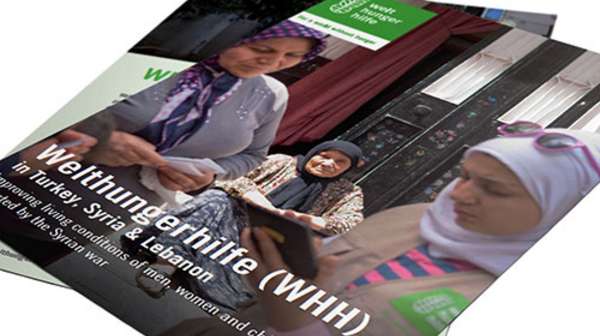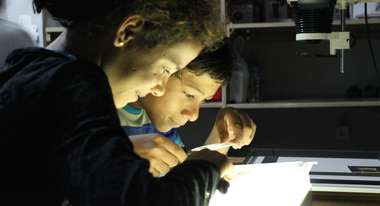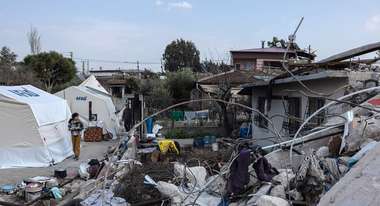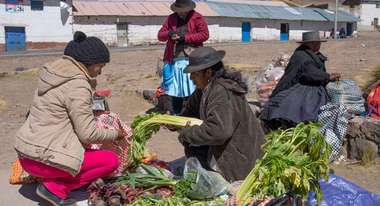Welthungerhilfe's work in Syria, Turkey and Lebanon
United in diversity
How Syrian and Turkish women in Istanbul are leading the way in integration.
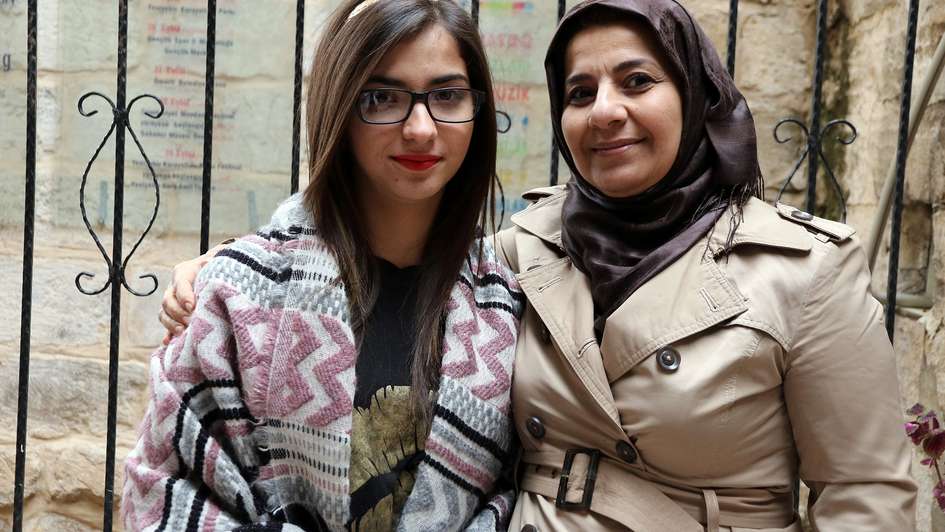
“We want to make a change in the community,” says one of the women who is part of the Sultanbeyli Association for Solidarity with Refugees and Asylum Seekers’s (RASAS) women’s refugee council. The council gives Syrian women an opportunity to come together, support each other and suggest activities, workshops or other events for the community. The women meet on a weekly basis where they learn about and discuss issues they are interested in such as women’s or refugee rights in Turkey. “There are few refugee councils like this in Turkey. We are maybe the second or third,” says Mert Okcebe, who manages the three councils for men, women and young people. “Our goal is to establish a culture of listening and talking to each other. We want to encourage the community to take initiative and become part of the centre’s decision-making process,” he says.
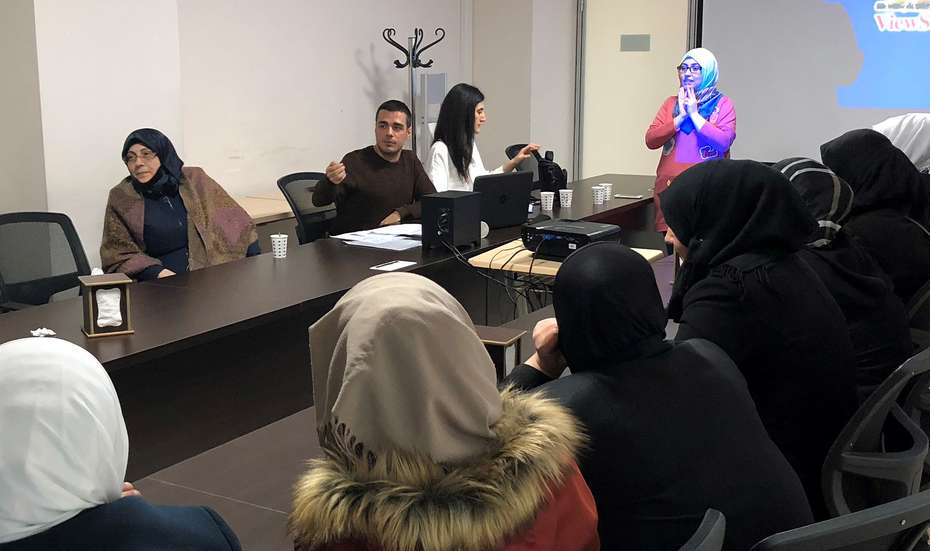
As a man, facilitating the meetings for the women’s council was not without challenges in the beginning, but Okcebe was able to quickly gain the trust of the female council members. “I try to communicate with them not only with words. I laugh with them. When somebody is sick I ask whether there is anything I can do to help,” he explains. His approach seems to be working. Today, the women are discussing organising a breakfast at one of their houses. “You have to join us,” says one of the female council members and smiles at Okcebe. The group starts laughing and nodding their heads. “Yes, we want you there,” says another participant. Okcebe is visibly moved by the heartfelt invitation. “I’m actually really surprised I’ve been invited,” says the 26-year old later.
“I feel like my opinion matters” – empowering Syrian women
The atmosphere during the meeting is relaxed. The women feel comfortable to share their ideas. Okcebe encourages them to suggest activities and topics they want to learn and talk about in the council meeting. This week they are discussing holding a handcraft workshop. Last week, they were talking about the issue of early marriage. One of the council members designed a flyer on the topic, which the group wants to distribute within their community. The women are happy to finally have a space to engage with others and actively contribute to improving their lives. “I feel much better since I’m participating in the council, because I met other women I can talk to and I feel like my opinion matters,” explains one of the participants.
One issue that keeps coming up is the relationship between Syrians and the Turkish host community. “It is very important to find ways to improve the relationship between Turkish and Syrian people,” Mert Okcebe says. Therefore, one of the centre’s focal points is to organise activities and events that encourage Turkish and Syrian people to come together and unite in their diversity rather than being divided. One idea introduced by the refugee councils is the “street visit” initiative. Turkish and Syrian neighbours organise afternoon tea gatherings at their houses to get to know each other better with the support of the RASAS social cohesion team.
Language skills – in the classroom or the neighbour's kitchen
Today’s get-together is hosted by a young Syrian woman who recently moved into a new building on the outskirts of Istanbul. The small living room doesn’t have any furniture yet. Six women are sitting on the floor holding their tea glasses. Most of them meet for the first time. But it does not take long for chatter and laughter to fill the room. Children are playing on the floor while the women are talking about their experience living in Turkey and the changes that come with it. “In Syria, we usually stayed at home and took care of the house and the kids. In Turkey, our role changed. Our husbands are often away all day looking for work, which leaves us with more responsibility. We go out to buy food and daily supplies, try to register our children in school or take them to the hospital if necessary,” one young mother tells us.
Most women are keen to improve their Turkish language skills and establish relationships with their Turkish neighbours. One woman from Eastern Ghouta takes language courses at the RASAS community centre and has significantly improved her Turkish. She also gets a chance to practice with her Turkish landlord. “She is sick and needs regular injections. I took some nursing classes and offered to help her,” she explains. An elderly Turkish lady who joined the “street visit” today also encourages her friends to engage more with their Syrian neighbours. “Many of them say they don’t know any of their Syrian neighbours. So I tell them to just knock on their door and sit down for tea with them,” she explains. One of her neighbours, a young mother from Aleppo, is sitting next to her. The two women hug each other and smile. “Even though my Turkish is not very good, we find a way to communicate with gestures and wild arm movements,” the Syrian woman laughs.
About the project
The refugee councils and “street visit” initiative is part of a Welthungerhilfe (WHH) project funded by the German government through its Association for International Cooperation (GIZ). The project provides integrated social services for refugees and local communities through community centre structures managed by Turkish partner organisations and Welthungerhilfe (WHH). The objective is to ease tensions, improve integration and strengthen social cohesion between Syrian and Turkish communities through community centres in Istanbul (managed by the Sultanbeyli Association for Solidarity with Refugees and Asylum Seekers (RASAS), Kızıltepe (Kiziltepe Leader Women Association (KWLA) and Mardin (Welthungerhilfe (WHH). All centres are open to both Syrian and Turkish people as well as non-Syrian refugees and offer a wide range of services aimed at helping women, men, and children, to adjust, adapt and personally advance in their lives in Turkey. The long-term focus of the centres is to bolster the resilience of vulnerable refugees and host community members by strengthening their ability to deal with daily life challenges.





